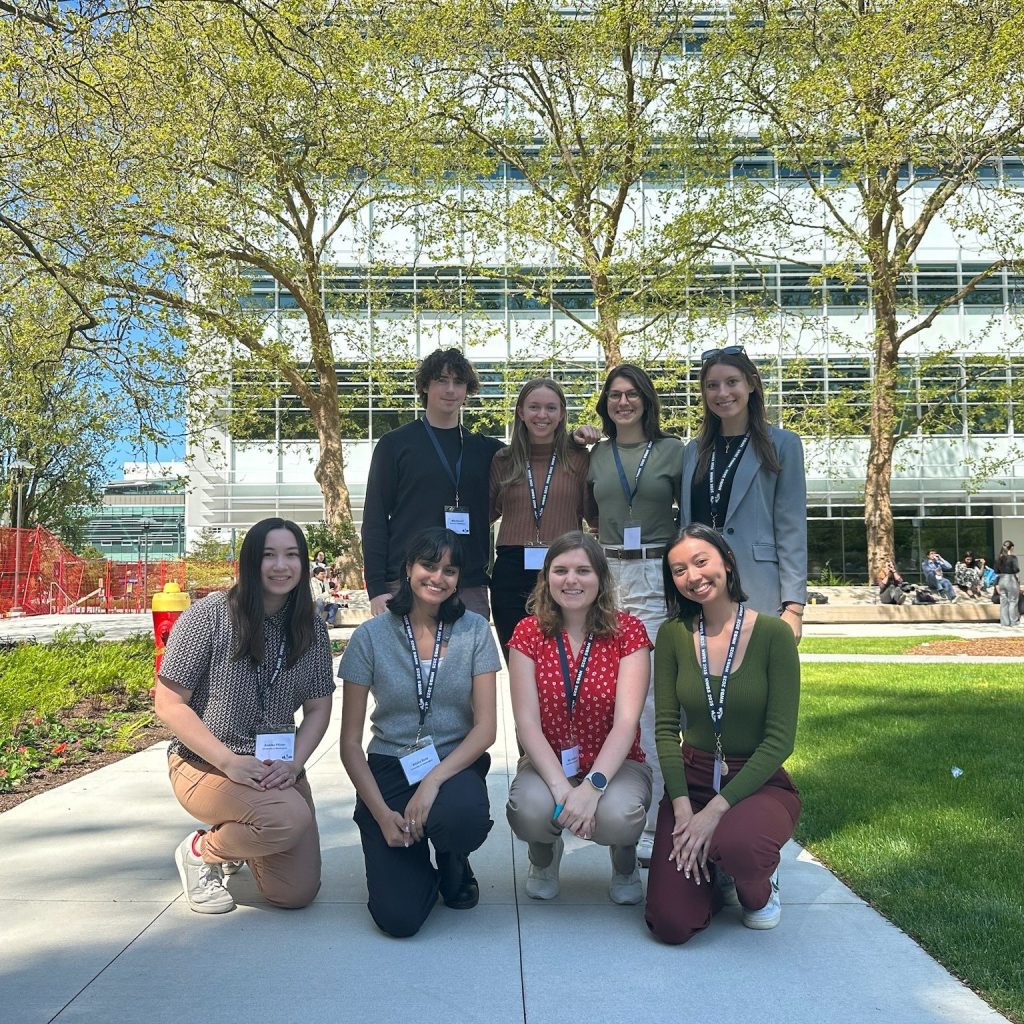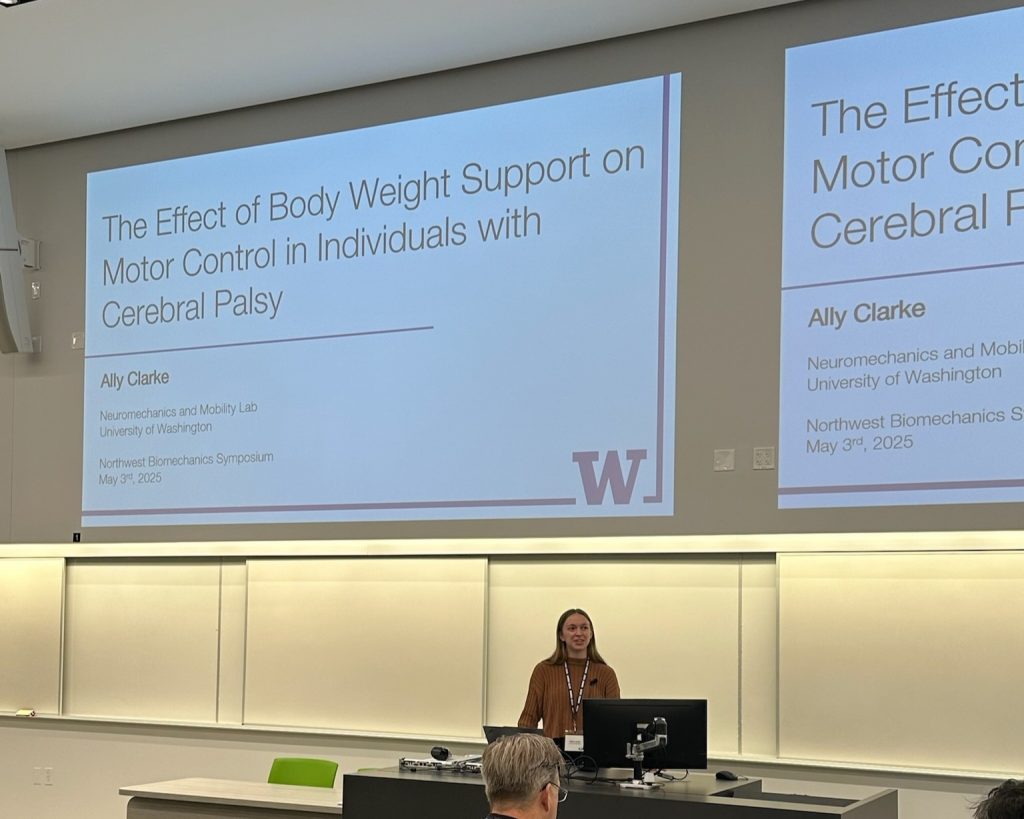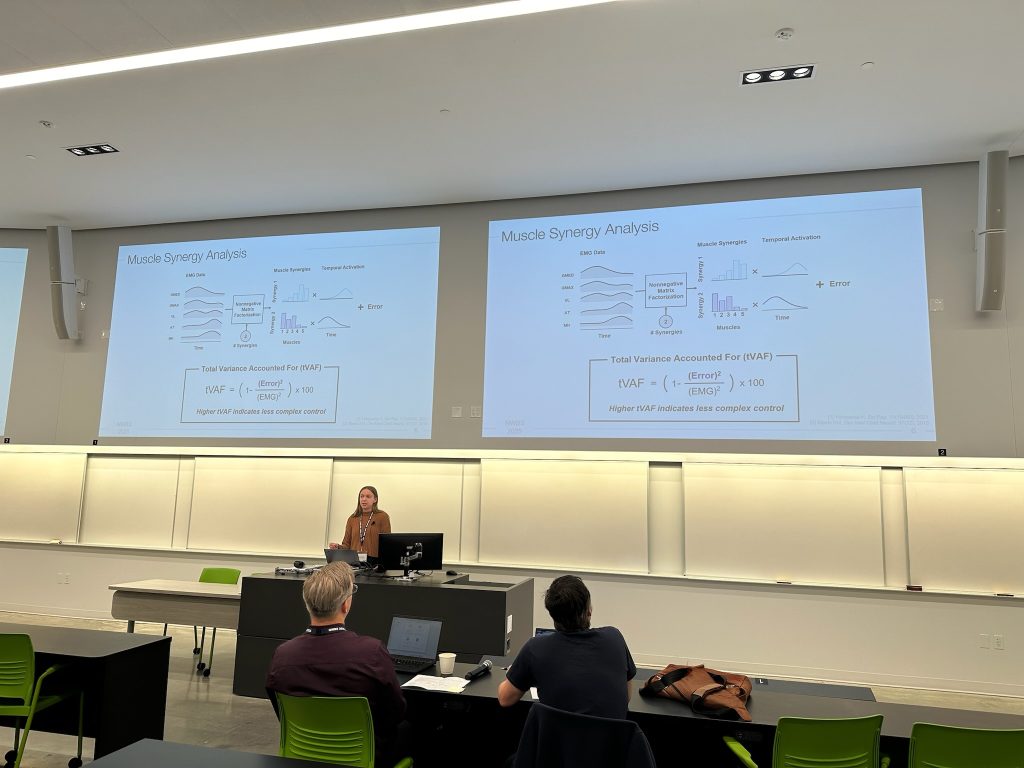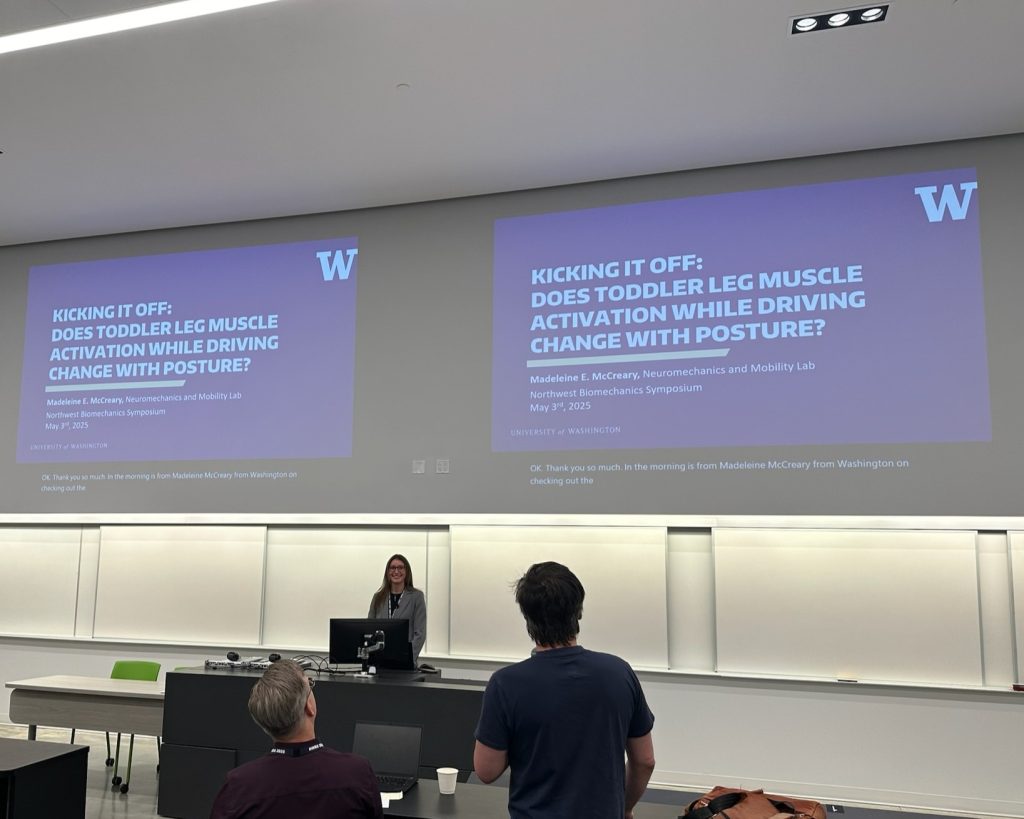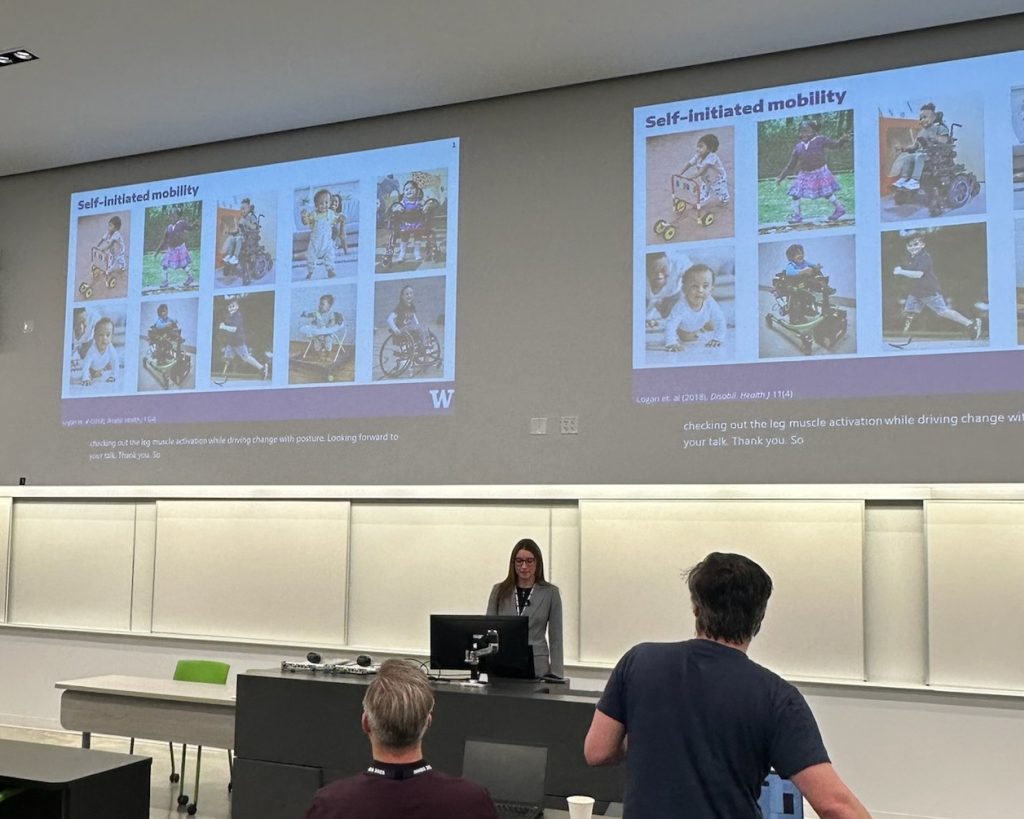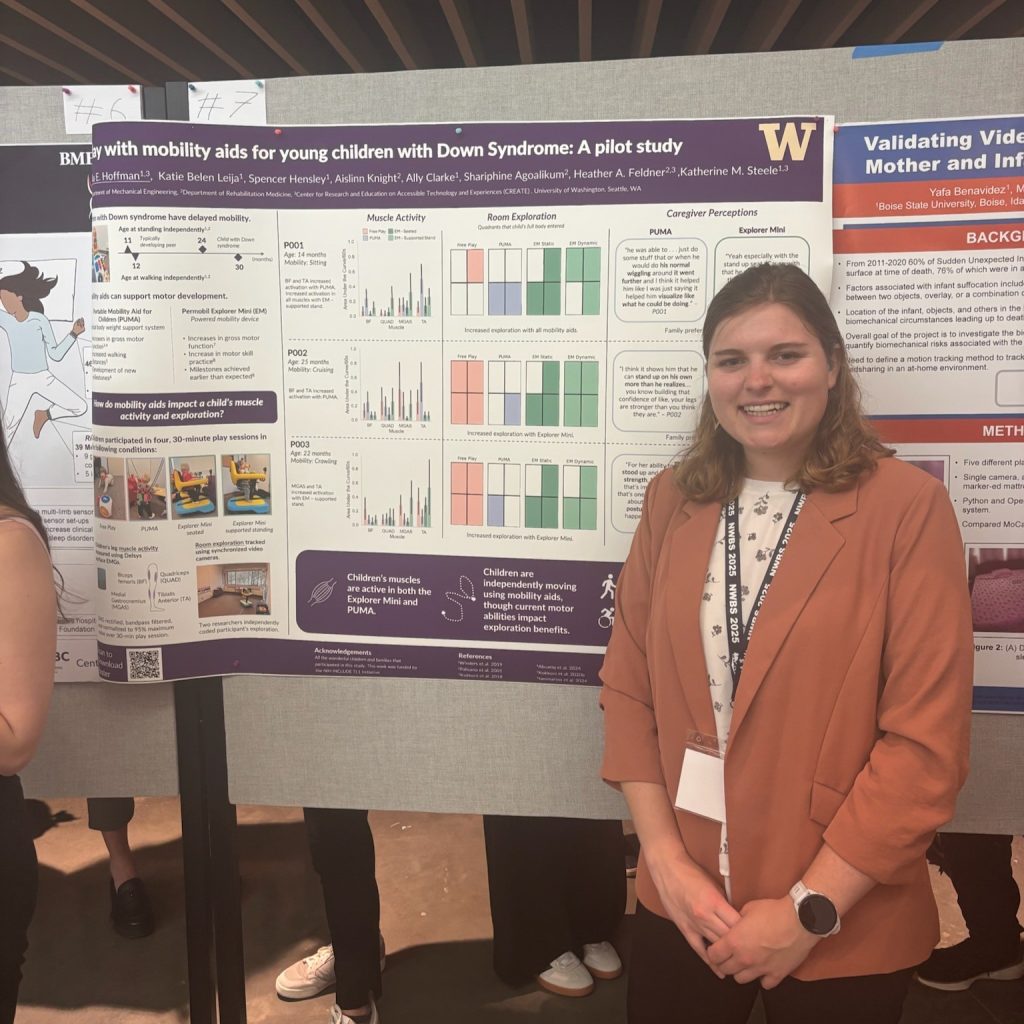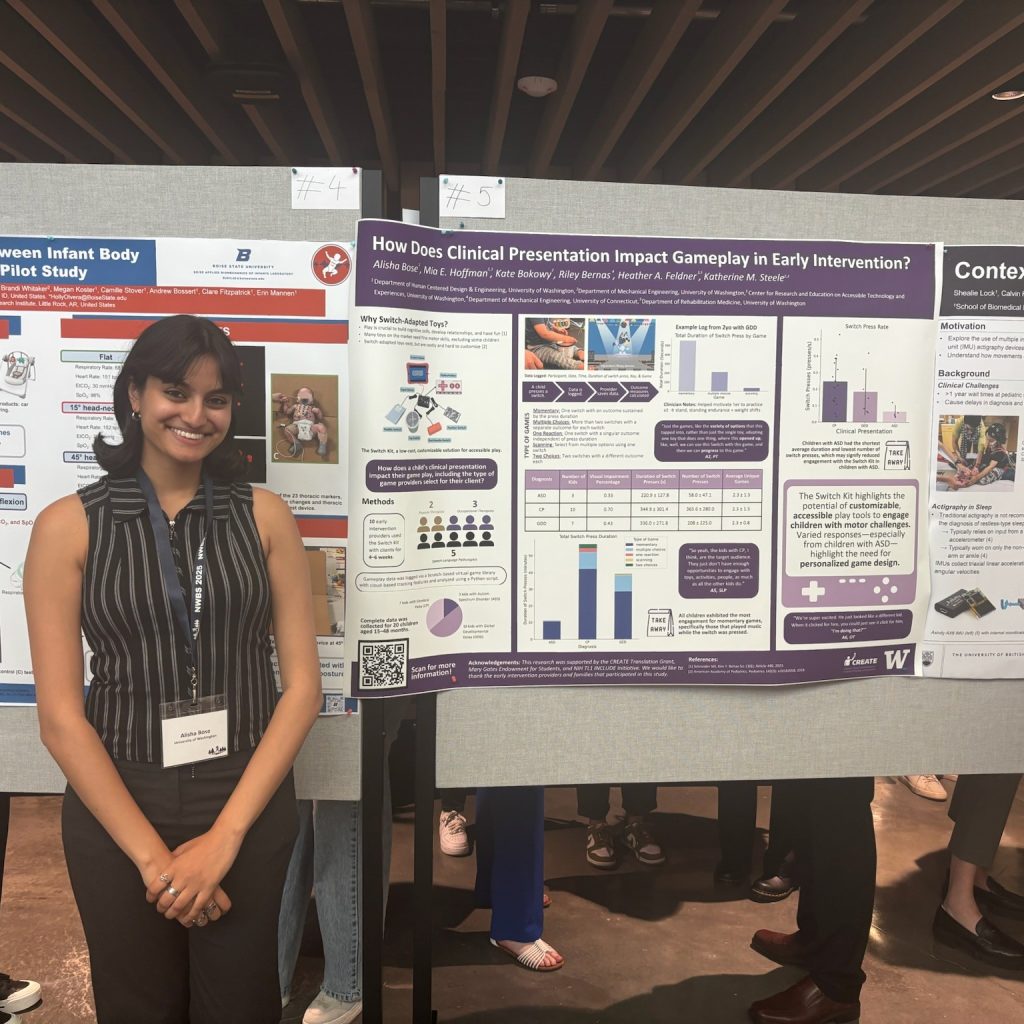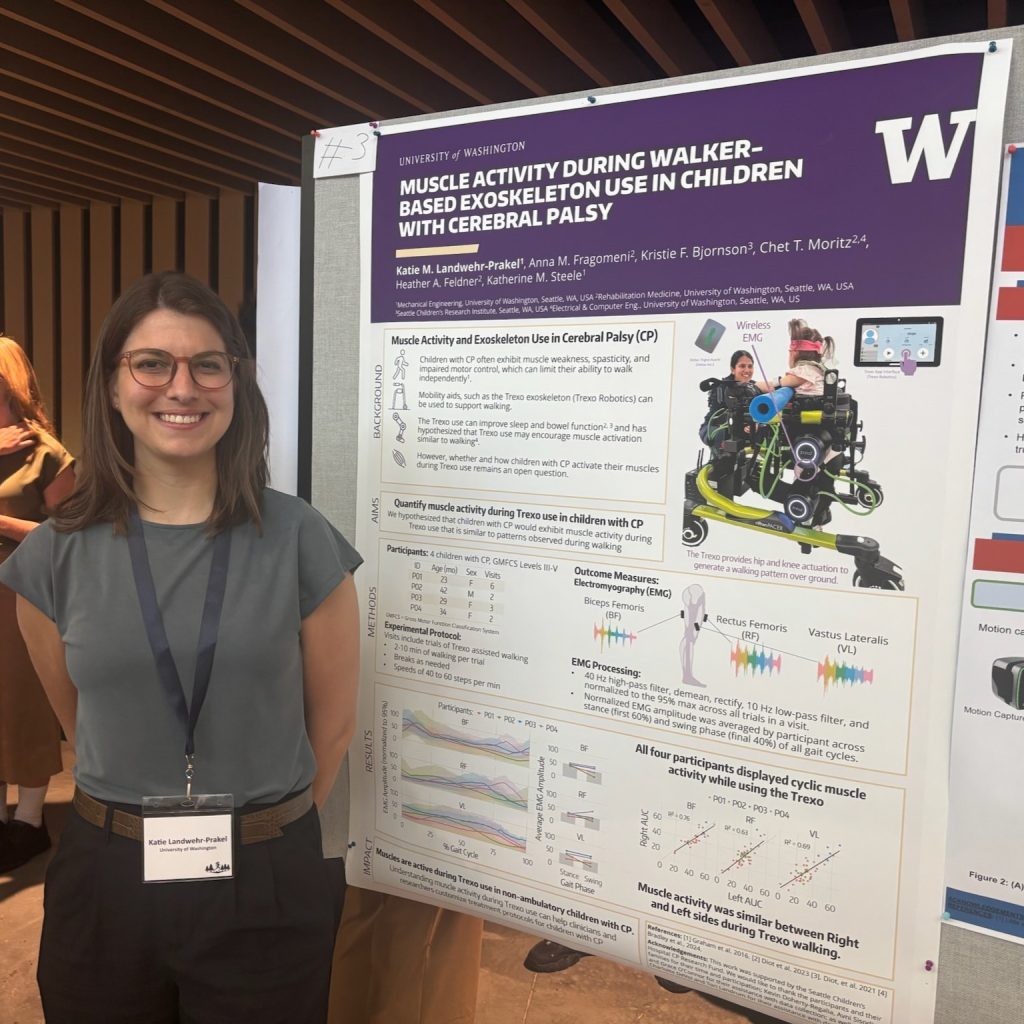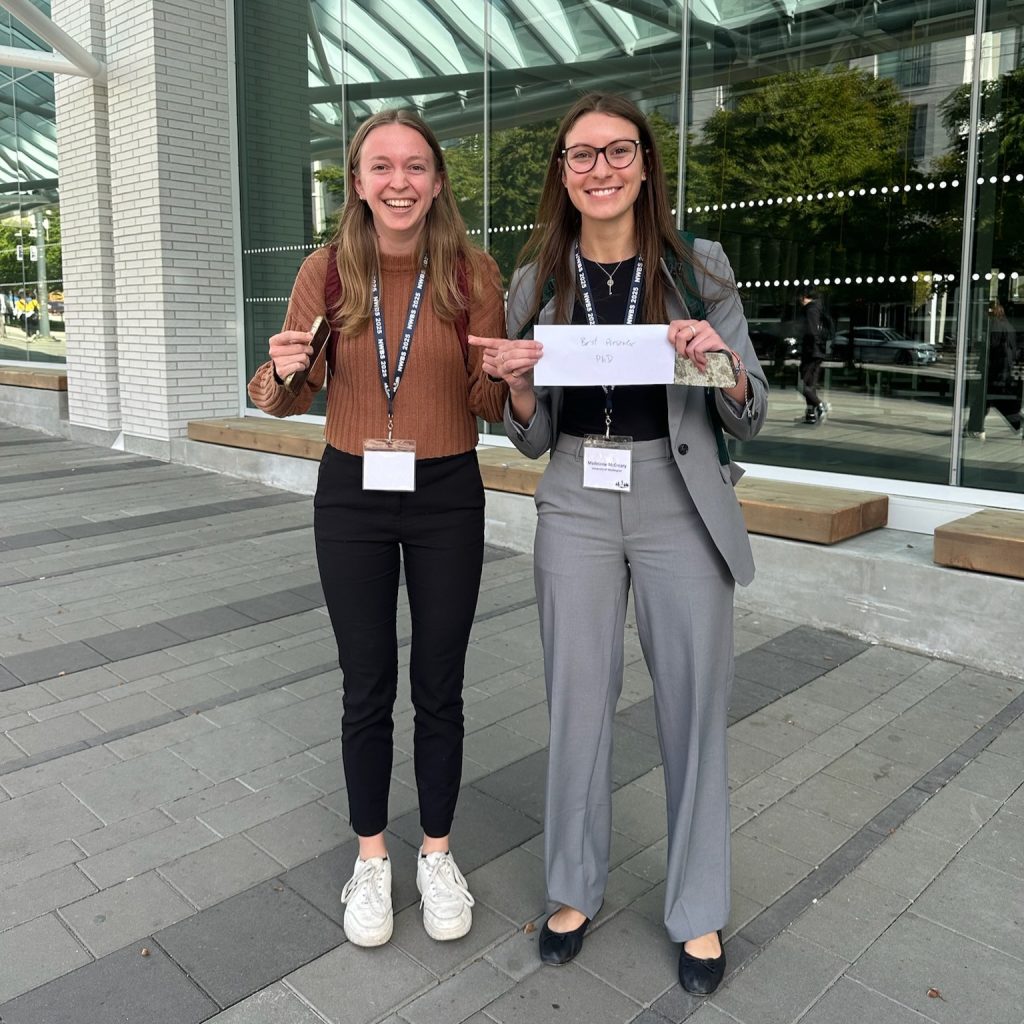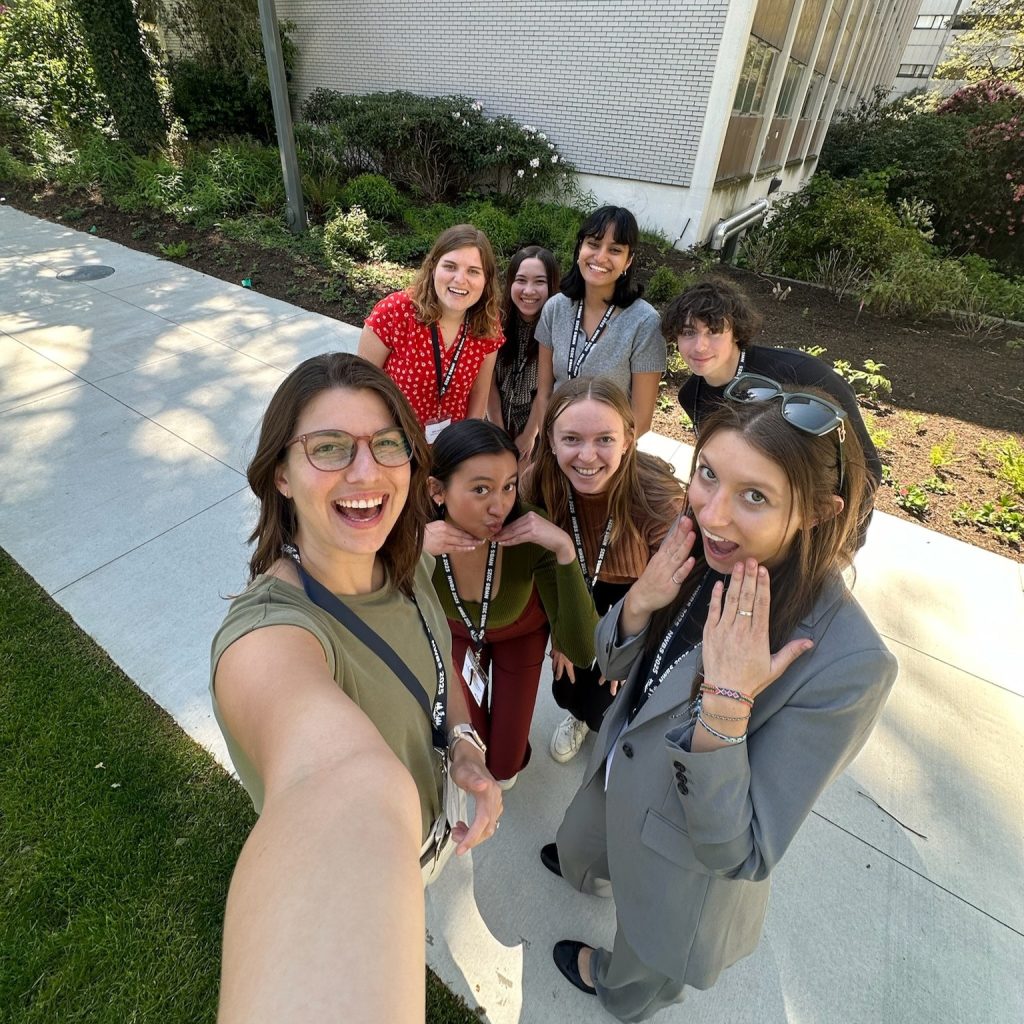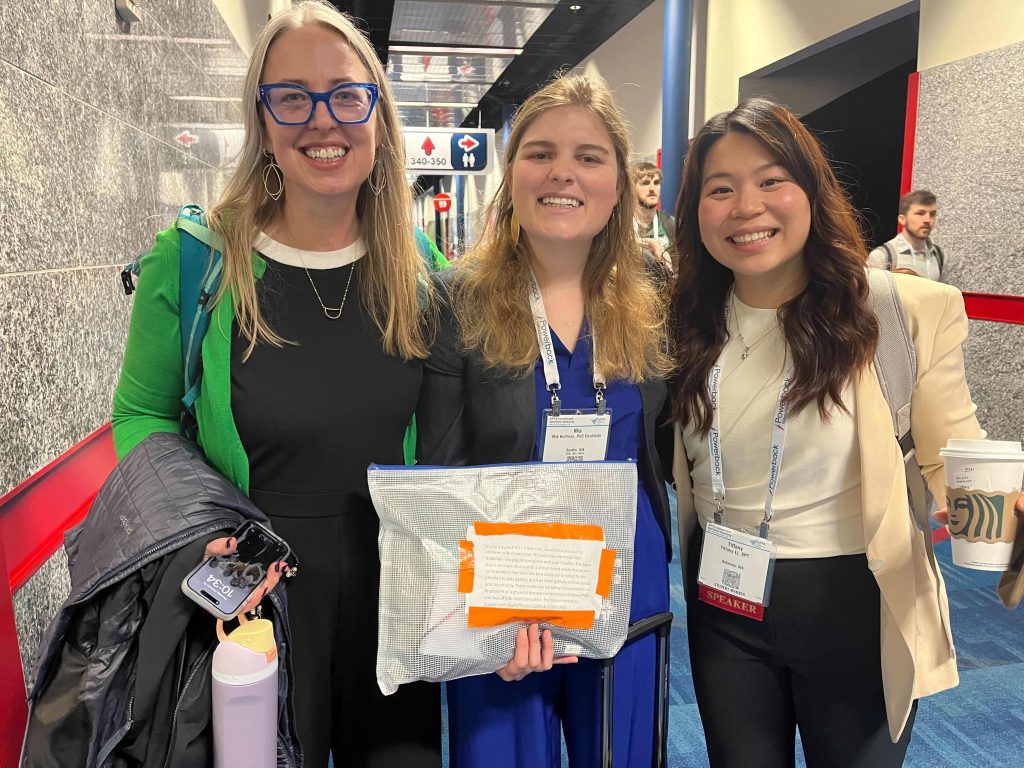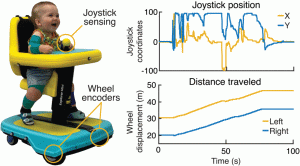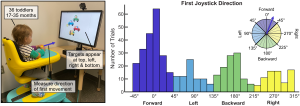Journal Article in the 10th IEEE RAS EMBS Intl. Conference on Biomedical Robotics and Biomechatronics (BioRob).
For toddlers with disabilities, assistive technologies can enable developmentally appropriate exploration, play, and participation, but little is known about how children interact with accessible interfaces, such as joysticks.
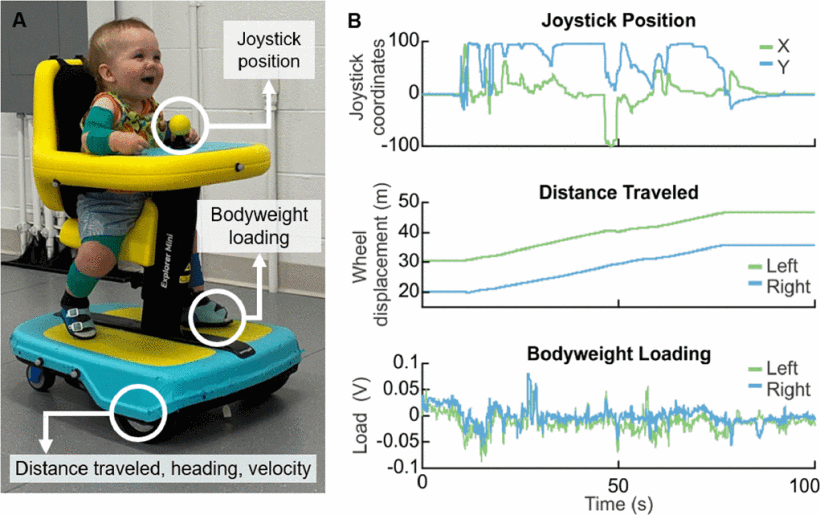 Aim: The Permobil Explorer Mini is currently the only commercially available, FDA-cleared pediatric powered mobility device in the United States designed for children ages 12–36 months. In this paper, we present an instrumented Explorer Mini that enables us to quantitatively analyze how young children with disabilities learn to use and interact with joystick-based technology.
Aim: The Permobil Explorer Mini is currently the only commercially available, FDA-cleared pediatric powered mobility device in the United States designed for children ages 12–36 months. In this paper, we present an instrumented Explorer Mini that enables us to quantitatively analyze how young children with disabilities learn to use and interact with joystick-based technology.
Methods: We discuss preliminary results from two studies conducted with two toddlers with motor disabilities using the instrumented Explorer Mini in different contexts: 1) during exploratory mobile play (i.e., driving) and 2) during interactive digital play (i.e., playing a simple computer game).
Results: In the first study, we found that, for a given 15–20 minute play session, participants drove between 11.3 and 65.6 m, and engaged with the joystick between 53 and 165 times. In the second study, we found that children could use the joystick to play a simple cause-and-effect computer game, but that they disproportionately used the ‘forward’ direction of the joystick, regardless of the direction of the displayed target.
Interpretation: The novel experimental platform, research framework, and preliminary data presented in this paper lay the foundation to study how children with disabilities learn to use and interact with joystick-based assistive technologies. This knowledge is critical to inform the design and advancement of developmentally appropriate technologies that equitably support toddlers in exploration, mobility, and play.

